Skulduggery
Updated: 2016-08-17 07:43
By Wang Kaihao(China Daily)
|
||||||||
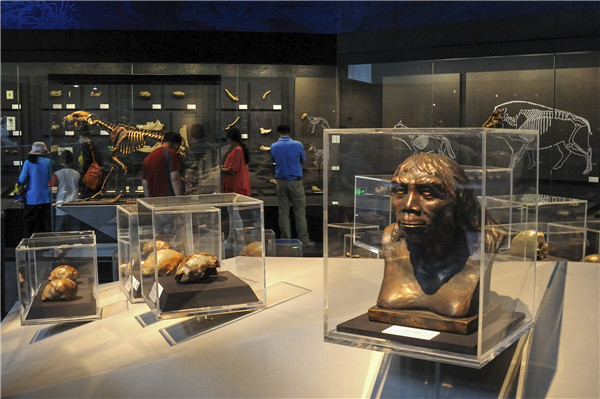 |
|
The new location for the Zhoukoudian Peking Man Relics Museum in Fangshan district, Beijing was opened to the public in May, 2014, and features 1,600 items of relics. GONG WENBAO/CHINA DAILY |
The saga of the missing skulls of Peking Man, a collection of Homo erectus fossil specimens unearthed in the Zhoukoudian area, Fangshan district of Beijing, remains a big mystery to this day.
In spite of their significance in academic studies, they disappeared during World War II, according to scholars.
Last week, the two-part Dragon Bones, a novel written in some 700,000 Chinese characters was released by Beijing Yanshan Press, telling the legends surrounding the lost skulls. The Chinese refer to fossils in general as "dragon bone" and the book title is also named after a hill on which the Peking Man remains were found.
In 1921, relevant material was discovered by Swedish geologist Johan Andersson, then a mining adviser to the Chinese government.
Large-scale archaeological excavations in Zhoukoudian began six years later and the astonishing finding of skulls followed in 1929.
The specimens dating to more than 700,000 years ago were considered by German anthropologist Franz Weidenreich as belonging to the ancestors of today's Chinese people. Some scholars at home and abroad even speculated that the findings pointed to the direct origin of modern man.
The novel has been written by Wu Jiang, a journalist, and an official named Cui Guomin. Wu, a media veteran, based his writing on interviews with the late scholar Jia Lanpo who hosted the archaeological project in Zhoukoudian in the 1930s. Cui wrote from his experience as the first director of a committee devoted to looking for the Peking Man skulls that was set up by Fangshan district authorities in 2005.
"In our continuous research, we found more than 100 possibilities of where Peking Man skulls went," Cui says. "We often got lost in circles. But the experience also give us abundant references for the book."
The fossils were housed in the Peking Union Medical College Hospital until 1941, when Chiang Kai-shek of the Kuomintang agreed to send them to the American Museum of Natural History in New York for temporary custody due to concerns that Japan's possible capture of the hospital may lead to their loss.
But it was Dec 8, 1941, the day after Japan bombed Pearl Harbor, when the fossils were being escorted by US soldiers on a train to Qinhuangdao port in North China's Hebei province. All the goods on the train were taken by the Japanese army and where the fossils went isn't known even today.
"In the recent years, veteran Japanese soldiers gave us some clues but all led to nothing," says Cui. "Though it is a novel, we wanted to respect historical accuracy."
He says the loss of the fossils is a "national pain".
"Our book recalls how people cared about the Zhoukoudian site and their eagerness to bring the lost fossils home."
The Peking Man site in Zhoukoudian was added by UNESCO to its World Heritage list in 1987, one of the earliest in China.
According to Wu, the co-author, the Chinese government had tried to get information about the lost fossils from Japan from 1946 to 48, but failed.
He also says that there is a theory that the real fossils may have been replaced by the Americans before they arrived in Qinhuangdao.
"Different theories are presented in the novel," says Wu.
- Comfort women's 71-year wait for justice and apology
- China denounces Japanese cabinet members' visit to Yasukuni Shrine
- China inches up Global Innovation Index 2016
- China launches the world's first quantum communication satellite
- Shanghai's two airports add security
- Nanjing begins WWII 'comfort stations' survey
- Premier Li to receive Aung San Suu Kyi
- S Korean president names 3 new ministers for partial reshuffle
- 1 dead, 2 injured in explosion in S Korean naval base
- 29 people killed in two separate bus accidents in Nepal
- Fifteen sets of twins from same area prepare for school
- Beach dedicated to dogs opens in Croatia
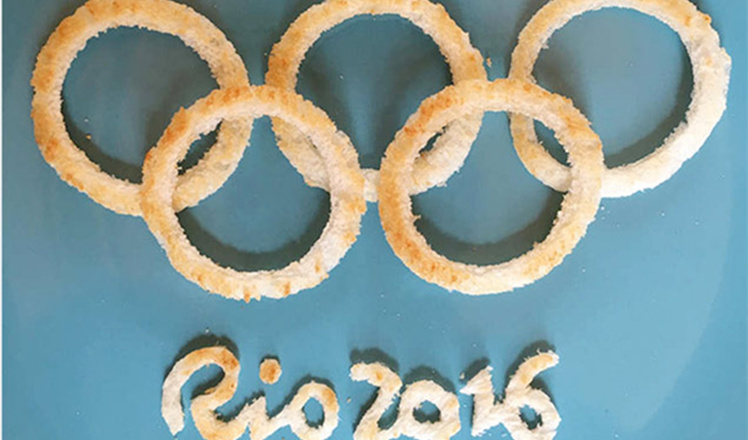
 British dad turns breakfast into work of art
British dad turns breakfast into work of art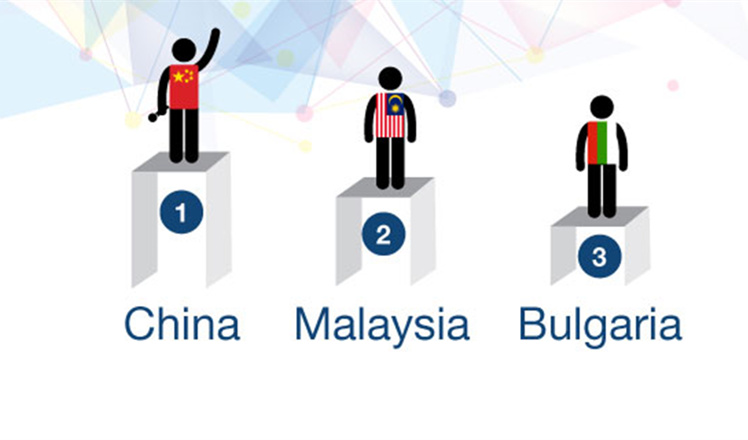
 China inches up Global Innovation Index 2016
China inches up Global Innovation Index 2016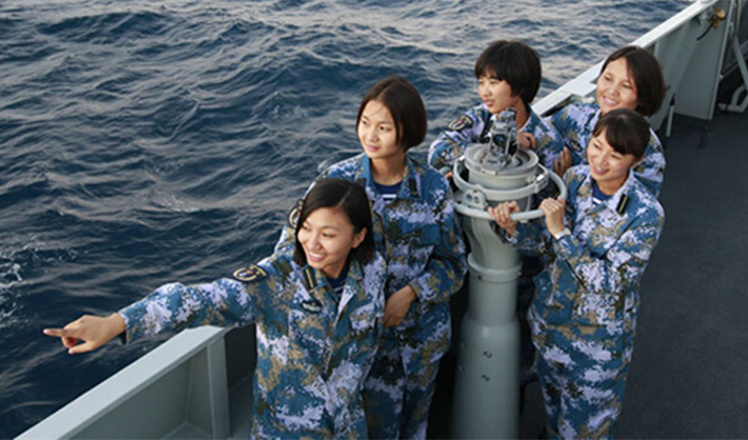
 Female soldiers on Frigate Jingzhou
Female soldiers on Frigate Jingzhou
 Synchronized swimming duo advances into final
Synchronized swimming duo advances into final
 Beach dedicated to dogs opens in Croatia
Beach dedicated to dogs opens in Croatia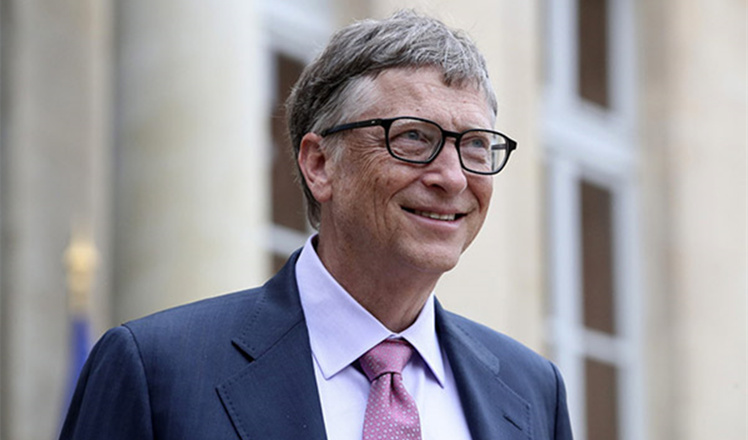
 Top 10 tech billionaires worldwide
Top 10 tech billionaires worldwide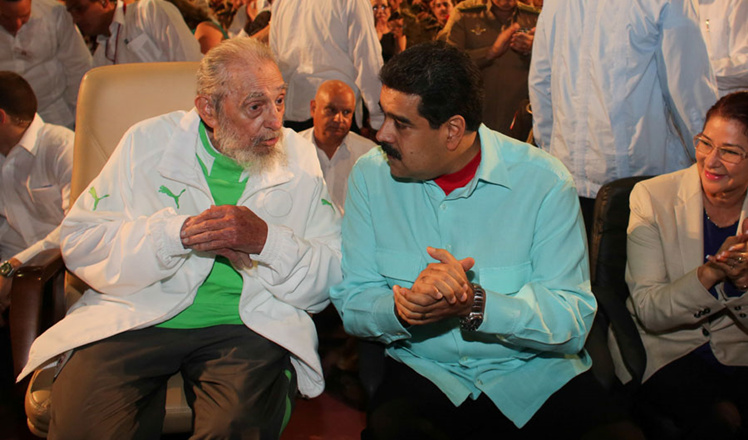
 Castro, 90, offers thanks on birthday, slams Obama
Castro, 90, offers thanks on birthday, slams Obama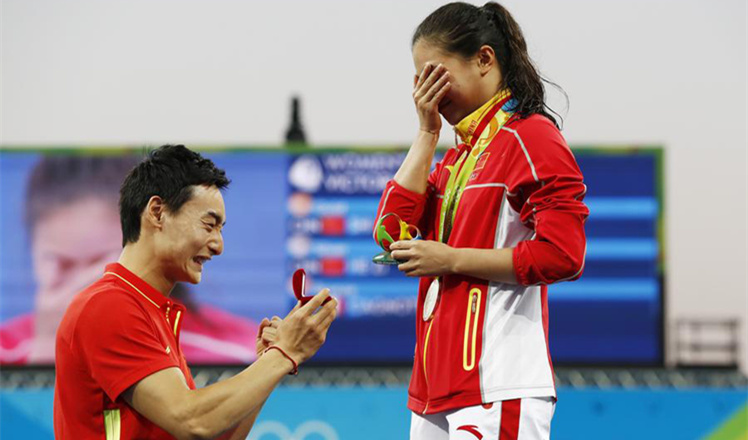
 Romantic ending for Olympic diving lovebirds
Romantic ending for Olympic diving lovebirds
Most Viewed
Editor's Picks

|

|

|

|

|

|
Today's Top News
Trump outlines anti-terror plan, proposing extreme vetting for immigrants
Phelps puts spotlight on cupping
US launches airstrikes against IS targets in Libya's Sirte
Ministry slams US-Korean THAAD deployment
Two police officers shot at protest in Dallas
Abe's blame game reveals his policies failing to get results
Ending wildlife trafficking must be policy priority in Asia
Effects of supply-side reform take time to be seen
US Weekly

|

|







